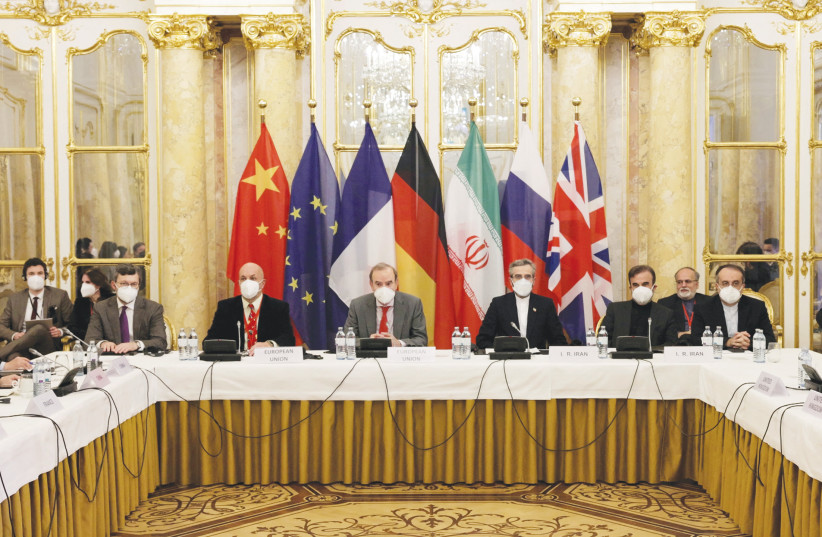Iran could make enough fissile for one nuclear bomb in "about 12 days," a top US Defense Department official said on Tuesday, down from the estimated one year it would have taken while the 2015 Iran nuclear deal was in effect.
Under Secretary of Defense for Policy Colin Kahl made the comment to a House of Representatives hearing when pressed by a Republican lawmaker why the Biden administration had sought to revive the deal, the Joint Comprehensive Plan of Action (JCPOA).
"Because Iran's nuclear progress since we left the JCPOA has been remarkable. Back in 2018, when the previous administration decided to leave the JCPOA it would have taken Iran about 12 months to produce one bomb's worth of fissile material. Now it would take about 12 days," Kahl, the third-ranking Defense Department official, told lawmakers.

"And so I think there is still the view that if you could resolve this issue diplomatically and put constraints back on their nuclear program, it is better than the other options. But right now, the JCPOA is on ice," Kahl added.
US officials have repeatedly estimated Iran's breakout time - how long it would take to acquire the fissile material for one bomb if it decided to - at weeks but have not been as specific as Kahl was.
While US officials say Iran has grown closer to producing fissile material, they do not believe it has mastered the technology to actually build a bomb.
The 2015 Iran deal
Under the 2015 deal, which then-US president Donald Trump abandoned in 2018, Iran had reined in its nuclear program in return for relief from economic sanctions.
Trump reimposed US sanctions on Iran, leading Tehran to resume previously banned nuclear work and reviving US, European and Israeli fears that Iran may seek an atomic bomb. Iran denies any such ambition.
The Biden administration has tried but failed to revive the pact over the last two years.
